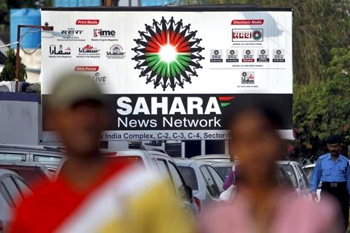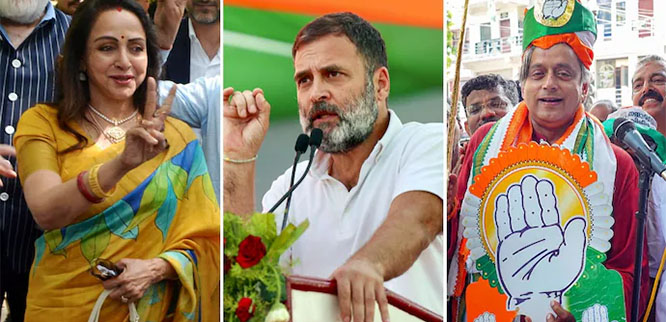Voting has begun in 88 constituencies across 13 states and Union Territories amid a furious row between the Congress and the BJP over manifesto and inheritance tax. Election will be held on all seats of Kerala, a chunk of Rajasthan and UP.
Key points
Elections for the second phase will be held for 20 seats of Kerala, 14 seats in Karnataka, 13 in Rajasthan, eight each in Uttar Pradesh and Maharashtra, seven in Madhya Pradesh, five each in Assam and Bihar, three each in Bengal and Chhattisgarh and one each in Jammu and Kashmir, Manipur and Tripura.
Earlier, 89 constituencies were expected to vote in this phase. But polling in Betul, Madhya Pradesh, was rescheduled after the death of a candidate from Mayawati's Bahujan Samaj Party. Betul will now vote in the third phase, due on May 7.
Key candidates for this round include the BJP's Union minister Rajeev Chandrashekhar -- up against Congress' Shashi Tharoor from Thiruvananthapuram; actors Hema Malini, and Arun Govil from 1980s iconic serial Ramayan, senior BJP leader Tejasvi Surya and Lok Sabha Speaker Om Birla, Congress' Rahul Gandhi, KC Venugopal, Bhupesh Baghel. and Ashok Gehlot's son Vaibhav Gehlot.
For both BJP and the Opposition, the most crucial states in this phase will be Karnataka and Kerala. Karnataka is the only BJP bastion in the south, where the Congress won in the last assembly election. The party is hoping to do well amid concerns about delimitation and the disadvantage southern states could face after it.
Further south, the BJP is trying to break into the bipolar politics of Kerala. The party is hoping to open its account in the state having fielded Union ministers Rajiv Chandrasekhar and V. Muraleedharan. In Wayanand, a Congress bastion for over 20 years, it has fielded its state unit president K Surendran against Rahul Gandhi.
For the Opposition, Kerala is a big shining hope. Even though the Left and the Congress are competing against each other in the southern state, victory by either will add to the tally of the Opposition bloc INDIA. Kerala is one of the few states that have never sent a BJP member to parliament.
With north, west and northeast India saturated, the BJP is hoping to expand in the south and east in their quest for 370 seats. The party had won 303 seats in 2019, a majority of them from the Hindi heartland and bastions new and old, including Gujarat and the northeast.
The Congress, though, has claimed it would post a much better performance compared to 2019. After the first phase of the election, their claims have got louder, especially in Rajasthan and western Uttar Pradesh. Rashtriya Janata Dal chief Tejashwi Yadav has claimed INDIA will win all five seats in Bihar.
The election is being held amid a bitter face-off between the Congress and the BJP. The row was sparked by Prime Minister Narendra Modi's comment that the Congress, if voted to power, will redistribute the personal wealth of people among "infiltrators" and won't even spare the mangalsutras of women. The Congress has questioned if the people had to fear for their wealth and mangalsutras in 55 years of the party's rule and accused the BJP of sidestepping issues that matter.
The next phase of election is due on May 7. The counting of votes will be held on June 4 – three days after the seventh and last phase of election on June 1.








Comments
Add new comment